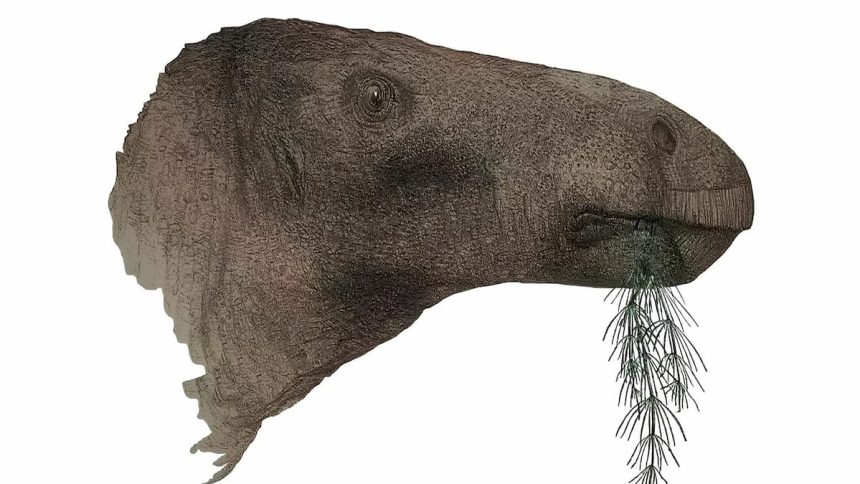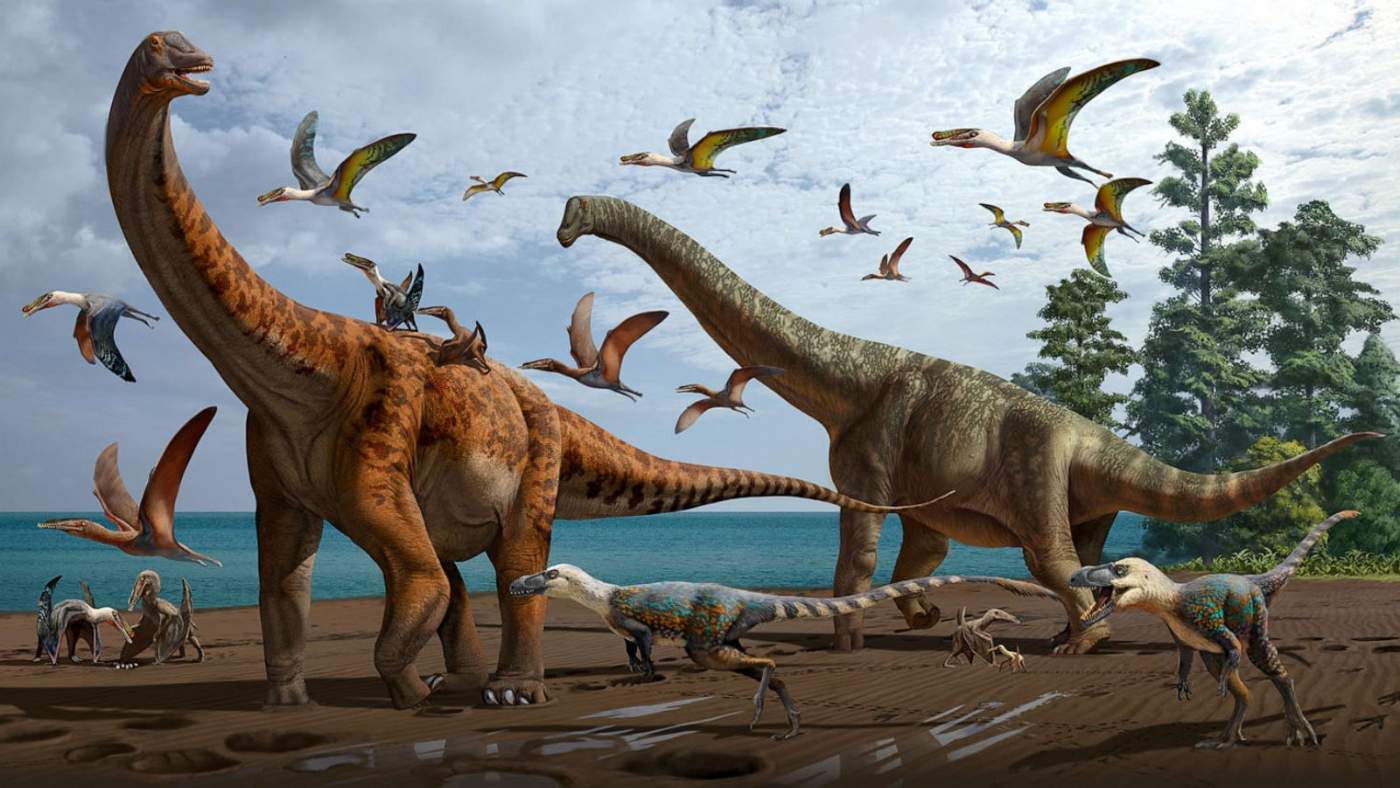A skeleton of an unknown dinosaur species has been discovered in Great Britain. According to the British Natural History Museum’s statement, with 149 bones, this is the most complete dinosaur skeleton found in Great Britain in a century.
The bones were discovered on the Isle of Wight in southern England, known for its rich fossil deposits. It is already the eighth new species that researchers have identified from findings on the island in the past five years. The animal was given the scientific name Comptonatus chasei.
Revealing Footprints
The name is composed of the discovery site, Compton Bay, and the name of the late discoverer, Nick Chase. He had stumbled upon the bones back in 2013, but the find was only now published in the journal “Journal of Systematic Palaeontology“.
The dinosaur, a plant-eater about the size of a male bison, lived about 125 million years ago. It belonged to the Iguanodontia group and was probably a herd animal. This was indicated by dinosaur footprints near the discovery site, said study author Jeremy Lockwood according to the statement.
According to Lockwood, the find shows that the Isle of Wight and surrounding areas were once among the ecosystems with the greatest diversity on the planet. Scientists hope the discovery will provide information about how habitats recovered after a mass extinction at the end of the Jurassic period.
The recent discoveries would suggest that the Iguanodontia formed a diverse group, Lockwood said. “It’s unclear whether they simply evolved faster than assumed or many species coexisted.”











